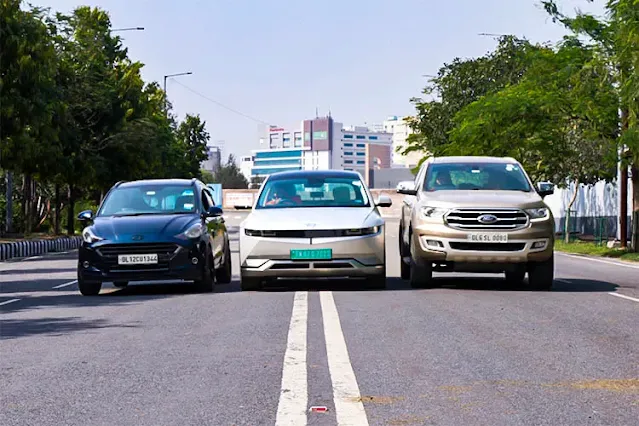By Shankar Sharma*
Two recent study reports by two elite engineering institutes, as in the links below, throw up more issues than they seem to have addressed. From the overall welfare considerations of our society, it should be a matter of concern that many such studies seem to focus only on one or two narrow issues, that too from only an engineering/ finance perspective, while not providing adequate focus to larger societal welfare issues surrounding the same.
Since the pollution from fossil fuels is considered as the most pressing concern from the global warming perspective, the consequences of not deploying EVs (not just E Cars but various forms of E-driven vehicles) should be diligently considered. Unfortunately, the local as well as global level consequences of scenarios of not moving from our fossil fuel dependent economy urgently to cleaner sources of energy, are not diligently discussed. Whereas, it is true that various mining activities required to manufacture the battery system for such EVs are also polluting, many technological innovations going on around the world will be able to minimise such point source of pollution, the continued usage of fossil fuels in any form can only pollute the larger atmosphere, and thus will hasten the climate change phenomenon.
Also very unfortunate is the fact that none of such discussions are even mentioning the critical importance of minimising the very need for the enormous number of vehicles plying on the road, and which are only escalating in number with the passage of each year. Without such a holistic perspective of the overall welfare of all sections of the global society on a sustainable basis, including that of flora, fauna and the general environment, the analysis of EVs vs fossil fuel vehicles, cannot be seen as anything useful to our society.
"The study reports that electric cars are not the most eco-friendly option when compared to hybrid electric vehicles and internal combustion vehicles."
"Given India's pursuit of nuclear energy development and the inevitable presence of seismic and tsunami threats in close proximity, it becomes imperative to enhance the safety of nuclear structures to the highest degree possible."
How well our society will be served by such elite institutions if they also focus on the overall welfare needs of our people, costs/ risks associated with such technologies, and the credible alternatives available to our society.
---
Power & Climate Policy Analyst
Two recent study reports by two elite engineering institutes, as in the links below, throw up more issues than they seem to have addressed. From the overall welfare considerations of our society, it should be a matter of concern that many such studies seem to focus only on one or two narrow issues, that too from only an engineering/ finance perspective, while not providing adequate focus to larger societal welfare issues surrounding the same.
Since the pollution from fossil fuels is considered as the most pressing concern from the global warming perspective, the consequences of not deploying EVs (not just E Cars but various forms of E-driven vehicles) should be diligently considered. Unfortunately, the local as well as global level consequences of scenarios of not moving from our fossil fuel dependent economy urgently to cleaner sources of energy, are not diligently discussed. Whereas, it is true that various mining activities required to manufacture the battery system for such EVs are also polluting, many technological innovations going on around the world will be able to minimise such point source of pollution, the continued usage of fossil fuels in any form can only pollute the larger atmosphere, and thus will hasten the climate change phenomenon.
Also very unfortunate is the fact that none of such discussions are even mentioning the critical importance of minimising the very need for the enormous number of vehicles plying on the road, and which are only escalating in number with the passage of each year. Without such a holistic perspective of the overall welfare of all sections of the global society on a sustainable basis, including that of flora, fauna and the general environment, the analysis of EVs vs fossil fuel vehicles, cannot be seen as anything useful to our society.
"The study reports that electric cars are not the most eco-friendly option when compared to hybrid electric vehicles and internal combustion vehicles."
- Rethink Energy Makes Bold Predictions About Global Vehicle Fleet Transition To Electric
- Carmakers emitting 74 million tonnes of CO2, Greenpeace says
- Focus on EVs and solar power integration
"Given India's pursuit of nuclear energy development and the inevitable presence of seismic and tsunami threats in close proximity, it becomes imperative to enhance the safety of nuclear structures to the highest degree possible."
How well our society will be served by such elite institutions if they also focus on the overall welfare needs of our people, costs/ risks associated with such technologies, and the credible alternatives available to our society.
---
Power & Climate Policy Analyst


Comments